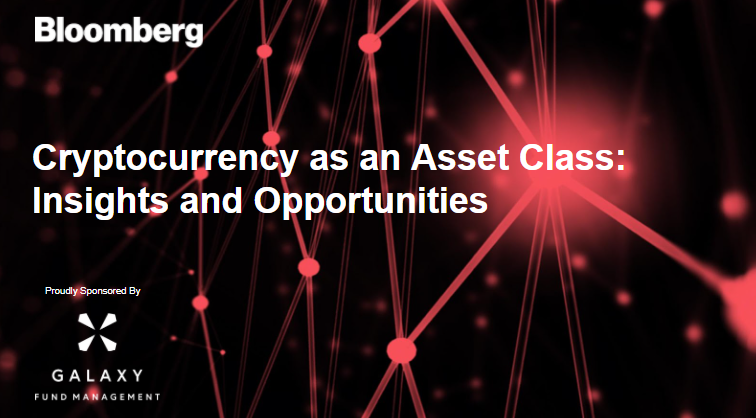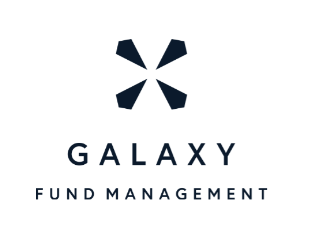
Cryptocurrency as an Asset Class: Insights and Opportunities
December 10, 2020
Event Highlights
On Dec. 10, 2020, Bloomberg hosted a virtual roundtable to discuss the growing awareness about and acceptance of cryptocurrency as an investable asset class. The discussion was led by Mike McGlone, Commodity Strategist, Bloomberg Intelligence, with prominent registered investment advisors sharing their views and questions.
Cryptocurrencies, also known as digital assets, are gaining attention from RIAs as investors look beyond traditional assets for portfolio diversification and growth. Pandemic-driven economic uncertainties have only increased interest in this non-traditional asset class. The fact that digital assets are largely uncorrelated with traditional asset classes in itself makes them attractive. But, beyond diversification, there is also discussion of digital assets like Bitcoin as a store of value hedge, similar to gold.
Participants in this discussion shared what they are hearing from their clients, and their own observations, concerns, and interests regarding investing in digital assets.
PARTICIPANTS:
Tom Cahill, Managing Partner, Beaumont Financial Partners
Donald Calcagni, Chief Investment Officer, Mercer Advisors
Kent Insley, Chief Investment Officer, Tiedemann Advisors
Keith Lamoutte, Chief Investment Officer, RSM US Wealth Management
Charles King, Managing Director, Chief Investment Officer, 1919 Investment Counsel
Steve Kurz, Partner and Head of Asset Management, Galaxy Fund Management
Tyrone Ross, Chief Executive Officer, Onramp Invest
Brian Vendig, President, MJP Wealth Advisors
Moderator: Mike McGlone, Commodity Strategist, Bloomberg Intelligence
Click here to view the video of the full discussion.
Here’s what they had to say:
Use cases
There was a great deal of discussion about the use case of Bitcoin. Is it a currency, a payments solutions, or a store of value? Brian Vendig, President, MJP Wealth Advisors, answered, “I think it’s our responsibility to recognize what a cryptocurrency is right now. And it’s an alternative asset class. It’s not a traditional stock or bond. You can write an investment thesis around it relative to concerns about inflation, but where we are right now is that it’s storing value.” Furthermore, Vendig stated, “We look at it as a hedge to some of the macroeconomic risks.”
Tyrone Ross, Chief Executive Officer, Onramp Invest, offered a different perspective on the use of cryptocurrency, “There is nothing in the world more powerful for the 1.7 billion unbanked in the world than Bitcoin. It is the one inarguable case that I wish we would spend more time talking about.”
Investor interest
Participants did express that to varying degrees they are being compelled to think more about cryptocurrency in response to questions from clients. Keith Lamoutte, Chief Investment Officer, RSM US Wealth Management, noted, “We are starting to get a lot more questions from clients driven by, I’m not sure if it’s genuine interest in the technology or a fear of hedging against policy mistakes, or just fear of missing out. It seems a little bit more like it’s interest in the momentum, especially as you start to see some larger name investors — whether it’s Druckenmiller and others kind of at least give it some credibility as they’ve made some investments.”
Opportunities
Most participants were at least partially optimistic about the prospects of cryptocurrency.
Tom Cahill, Managing Partner, Beaumont Financial Partners, said, “We do like some of the features that it brings to the table that differentiate it from other asset classes. So we are supportive and we do like its prospects.“
Charles King, Managing Director, Chief Investment Officer, 1919 Investment Counsel, said, “This technology that Bitcoin and crypto is built on will probably be the most powerful force that we see in the next 20 years, 30 years, as it relates to financial institutions, how trade occurs, how settlements occur, the speed of capital. It’s massive.”
Vendig summarized, “It’s about that opportunity of a structural process playing out within the economy that I think the value of Bitcoin or Blockchain in general is creating an efficiency for transactions and financial ledgers to be managed.”
Educating clients
RIAs have their work cut out for them in regards to educating clients on Bitcoin and how it fits into the digital ecosystem. Kent Insley, Chief Investment Officer Tiedemann Advisors, shared, “Most of our clients are interested in being educated on how a Bitcoin could and may already act as a store of value. And in ways can look similar to digital gold, and there we talk to them about the potential for the asset to act as an alternative currency over time, a means of payment in some ways, but also an asset that can be used for settlement purposes over time. And all of those have potential to contribute to it as a store of value over time.”
Some questions
Given that digital assets are still new and the infrastructure still in development, there are lots of questions awaiting answers. Donald Calcagni, Chief Investment Advisor, Mercer Advisors, asked, “What’s the business case for Bitcoin? What problems does it solve for customers…those are the questions that we have to answer before we, with integrity, can add a new asset class.”
King pointed out, “While we want to think about Bitcoin and other cryptocurrencies from an asset allocation perspective of hedging macro risks, I want to spend even more time understanding the implications, the broader implications for other asset classes and sectors within equities and fixed income.”
One of the biggest questions was in regards to the regulatory framework and general infrastructure for cryptocurrency. Ross, while optimistic about the asset class, would still like to see “proper infrastructure, qualified custodian advice from FINRA and SEC. Hopefully, at some point the SEC and CFTC get together and give advisors an armed booklet on how to handle this.”
These concerns were addressed by Steve Kurz, Partner and Head of Asset Management, Galaxy Fund Management: “Bitcoin can no longer be rejected from an ODD perspective, an operational diligence perspective. It can be dismissed from an investment perspective. It’s volatile. I don’t understand the use case. These are all questions we should debate and discuss. But from an ODD perspective, we now can say with a straight face, there are regulated exchanges with real spot volume in the billions every day in the U.S., there are regulated futures and options markets. There are qualified custodians. There are service providers that you’ve heard of before. And so that starts to be really interesting. Now we can go have a practical investment conversation and debate. I think that’s a foundationally different place than a year or two ago.”
The evolution
Consensus: That this asset is not going away. The questions were about when and how to get involved, not whether. Cahill observed, “This year has been such as big turning point in sort of adoption and acceptance in that you’ve got major corporations, publicly traded entities taking millions and millions, hundreds of millions of treasury dollars and parking it in Bitcoin instead of cash because of all the fiat currency fears out there…So you’ve got just lots of things going on that just haven’t been in place before.”
Kurz summarized, “The fundamental point is that the payment rails of the future are going to be digital. There’s going to be fungibility between digital assets whether that’s Bitcoin or whether it’s US dollars on those rails, or whether it’s your Delta loyalty points. The backbone of the payment system is being rebuilt. It is going to be digital.”
King gave the most optimistic picture, saying, “Bitcoin represents an amazing degree of evolution for payments for the unbanked, for the global community. And to me, that represents a great statement about a bright future for global markets for investors and for the people, the undeveloped world, giving them opportunity and access to assets and methods that they didn’t have before.”
Doing it right
All participants expressed an attitude of caution and a desire to self-educate and to introduce this new asset in a fully prudent and compliant manner. As Cahill stated, “As advisors, it’s incumbent upon us to just right-size the allocation given some of the concerns that were raised earlier. But it does have a role in a portfolio for some clients, not all clients.”
Insley said, “It’s our responsibility to keep on pushing our trusted partners, like the custodians that have been mentioned today, to try and continue to lower the cost of access for this and provide the most secure solution.”
As Vendig suggested, “I think we have to be sensitive to the fact that this is an ongoing development area, where we’re seeing more leadership from institutions right now, leading the charge, but as the process mechanics play out, I think a lot of the questions that were brought up before will be answered, and we’ll be able to do a better job and try to explain that to a client.”
——————————
Instagram: @BloombergLive
LinkedIn: Bloomberg Live
Twitter: @BloombergLive
Interested in more Bloomberg Live virtual events? Sign up here to get alerts.
——————————
